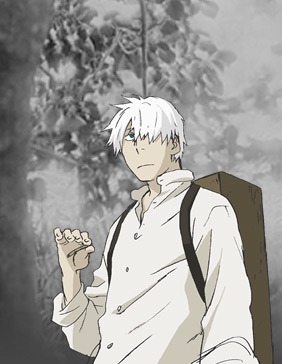
Mushi-shi is an episodic anime. There is no storyline and very few reoccurring characters. Ginko travels throughout Japan collecting samples of Mushi from swamps, pillows, people, and other places they live. He takes special care to help people troubled by parasitic Mushi and other problems associated with them. In one episode, a man in a small village had dreams that frequently came true. Both for good and for ill. The dreams were caused by Mushi that slipped from the world of dreams and into the man’s pillow. Every episode has this neutral aspect. The Mushi help and hurt. They are not evil as Ginko emphasizes. They just try to survive like everything else.
The settings of the series are beautiful. The lovingly painted watercolor landscapes really come to life. The characters themselves lack detail, but they are as alive and interesting as the Mushi. The series is full of wonder and sadness. Sometimes, Ginko fails to help people…especially those who don’t want help. Many episodes leave this mixed feeling as Ginko wanders on, never to see the people…or the Mushi… again. It is a very Zen feeling series. Everything is as it is.
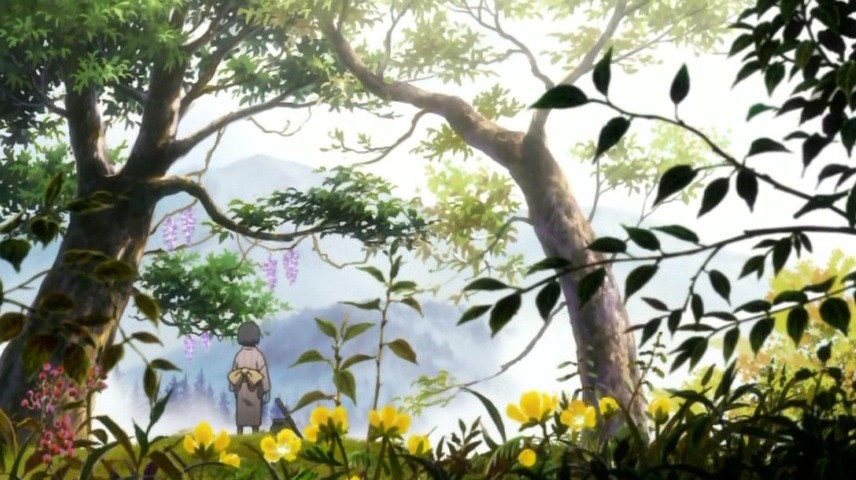
The anime leaves me mixed. It is very beautiful and thoughtful, but the lack of character development and overarching story hurts the anime in my view.I like character development too much I think.
Mushi-shi is by no means a bad anime. It is just not one I can watch back to back episodes. The poignant feeling many episodes left me made for troubled sleep. Mushi-shi is a very deep and thoughtful anime; just don’t watch it in large blocks before going to sleep. Your mind won’t be able to rest with the ideas this series leaves behind.
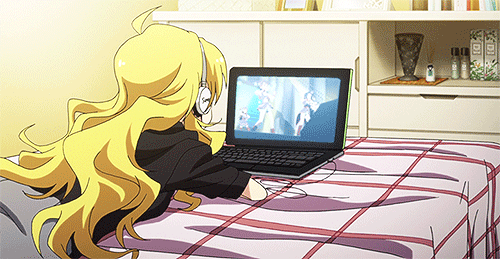

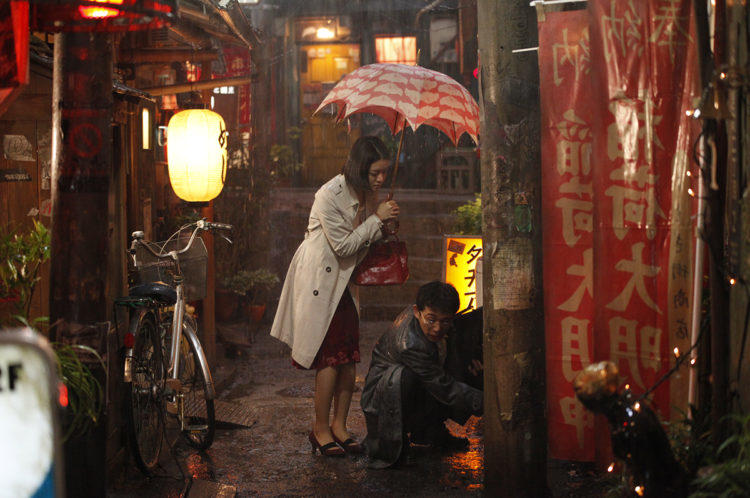
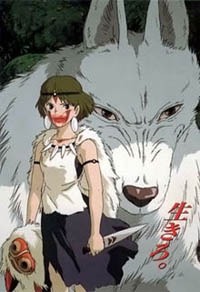
Mushishi is a really srtange, unique, and incredible anime. Its focus isn’t on character development (like what you’d expect when Celeste mentions people being at the center of Mushishi), but rather on people in general. How they act, how they interact, and how they live their lives. As an episodic show, it’s not going to delve too deeply into fleshing out the characters (or even Ginko himself!), but it does string together enough short stories to let the audience better understand both the world of Mushishi and the real world.===== SPOILERS AHEAD =====I believe that mushi are both a fantasy element and a tool Urushibara uses to better display human nature. One chapter in particular shows this quite well: there is a mushi that sucks in animals and humans, forcing them to go into a time loop and repeat their lives over and over again. A man trapped in this loop escapes from it with Ginko’s help, deciding to look ahead to the future instead of trying to change the past. Yet he eventually goes back into the loop as his wife is dying. It’s a story that makes the readers question themselves: would I do that? Should humans accept their painful past and live for the future when given a choice like this?That’s why I love Mushishi. Each chapter/episode has a small twist with a couple of morally hard questions. It’s a show that I still think about years after I’ve watched it, because it’s left such a large impact.
Mushishi is an interesting watch. Since I enjoy a lot of characterization, I can only watch Mushishi occasionally. I prefer stories with character development. The series presents some different and sometimes profound ideas about life and interconnections between living beings. It does present some tough questions too.